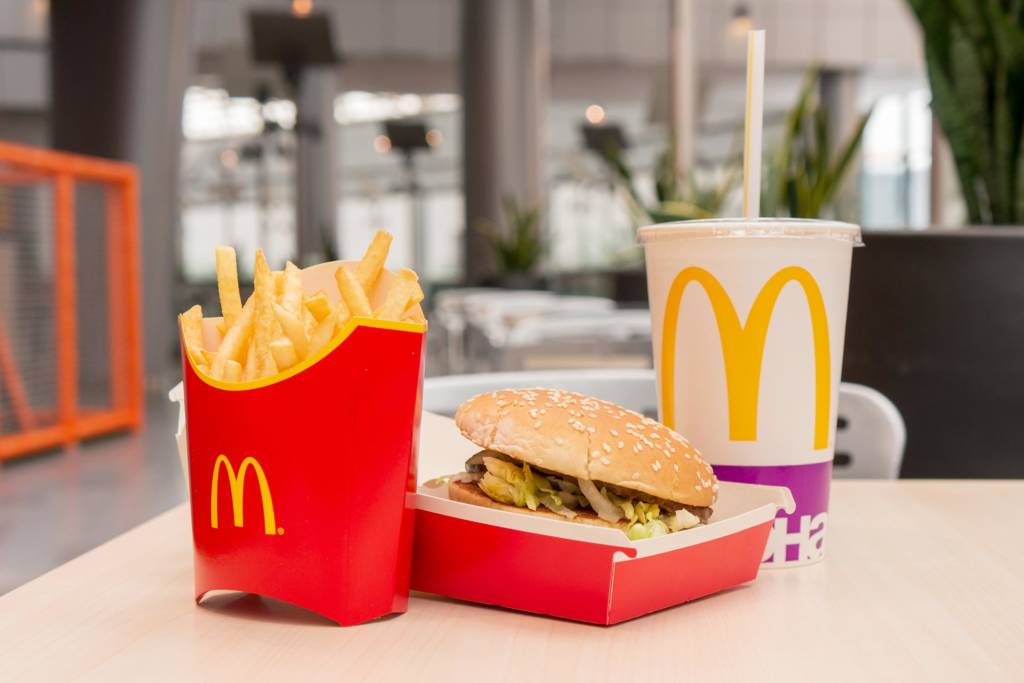After the popular food delivery app, Zomato got embroiled in a controversy a few weeks ago, McDonalds is now facing a massive backlash on Twitter. It all started after the fast food chain replied to a Twitter user stating, “Thank you for taking the time to contact McDonald’s India. We truly appreciate this opportunity to respond to your comments.The meat that we use, across our restaurants, is of the highest quality and is sourced from government-approved suppliers who are HACCP certified.” It also added, “All our restaurants have HALAL certificates. You can ask the respective restaurant Managers to show you the certificate for your satisfaction and confirmation.” In a massive outrage tweeter users have been arguing why McDonalds, all of whose outlets are Halal certified has no answer for Jhatka meat. One of the users on the microblogging platform tweeted, “Go To Hell, then. We Hindus only have JHATKA MEAT, Will educate others as well to not have any Non Veg Food From your chain. If you not want to end up like ZOMATO, ensure that JHATKA MEAT is served. Else, embrace for Financial Loss.”
https://twitter.com/mcdonaldsindia/status/1164584030647377920
Go To Hell, then. We Hindus only have JHATKA MEAT, Will educate others as well to not have any Non Veg Food From your chain. If you not want to end up like ZOMATO, ensure that JHATKA MEAT is served. Else, embrace for Financial Loss. https://t.co/ySGeo7Cxec
— ਪੰਜਾਬੀ (@HasdaaPunjab) August 23, 2019
This has reignited the “food and religion debate” which started after Zomato got involved in major controversy few weeks ago. It is important to mention here that McDonalds’ journey in India has been more than two decades long. During this period, the people of India have developed a deep emotional connect with the fast food brand. McDonalds was one of the first fast food chains to arrive in the Indian market and probably remains the most popular choice among all fast food brands. As of 2017, McDonalds ran 400 stores in India which is an indicator of its massive presence in India. The nostalgia connected with McDonalds has translated into massive revenue for the brand.
Now, the Twitter users seem to be upset over what they see as the compulsion for Halal certification on the part of those engaged in food industry, a process of certifying meat products as Halal. Earlier, Zomato had faced an outrage after it gave an explanation about Halal meat, stating, “Restaurants (whether a Muslim establishment or otherwise) serving meat specifically obtain halal certification by an all-India body. Again, we play no role in this categorisation as we only seek proof of authenticity when a restaurant claims to serve halal food. FSSAI license is mandatory. Halal certification is voluntary.” It then went on to explain that halal food is specifically mentioned so that users can make an “informed choice.” Ironically, this had come after Zomato had claimed, “food doesn’t have a religion”, when one of the Zomato users had cancelled an order because the delivery boy was a non-Hindu. However, the manner in which it had given an explanation about Halal meat had left several tweeter users angry.
Mohammed Ashraf ordered Veg Pizza, he got a tasty Veg Pizza. But still he complained because the restaurant also has Pork in its Menu.
Look how politely you replied to this religious complaint.
Only values you have is Money, so stop preaching. https://t.co/v3qapE9GCU pic.twitter.com/qXDkw1xB1B
— Ankur Singh (Modi Ka Parivar) (@iAnkurSingh) August 1, 2019
Now, many Twitter users have shown aversion towards consumption of Halal meat but McDonalds has enthusiastically announced that all its outlets have HALAL certificates. It must be noted that as per the Halal Food Authority (HFA), a non-profit organisation that monitors adherence to halal principles, there are several principles on the basis of which meat qualifies as Halal. One of those principles is that the slaughter should be performed by a Muslim. This automatically disqualified a non-Muslim from employment at a slaughter firm if it is engaged in Halal meat. Non Muslims might be desirous to consume only Jhatka meat because of the fact that Halal is essentially ritualized meat. And at the end of the day, every individual enjoys certain basic liberties. Not consuming Halal meat or any other specific kind of meat for that matter is essentially an individual choice. Therefore, the nonchalant attitude towards Jhatka meat is now being seen as something highly objectionable.
It has been seen time and again that those engaged in the food industry have been pandering to the demand of availability of Halal food. This therefore negates the very idea that food does not have a religion. Food delivery apps and restaurants seem to be understanding fully well the religious value of Halal meat and that is why they are coming out with explanations. However, what these outlets must also understand is the fact that individual choice in a diverse country like India can never be a one way thing. If they are pandering to one social group, they must take care of the individual choice of those who belong to another group. These massive fast food chains have reached the kind of level that they have reached in India only due to the vast array of customers encompassing all sections of society. As such, they have no moral right of discriminating between different sets of customers. They must respect the individual choice of every customer. The right of the consumer to make an “informed choice” must be respected and now other popular outlets such as KFC, Pizza Hut, etc. must also clarify their policy over this issue.
